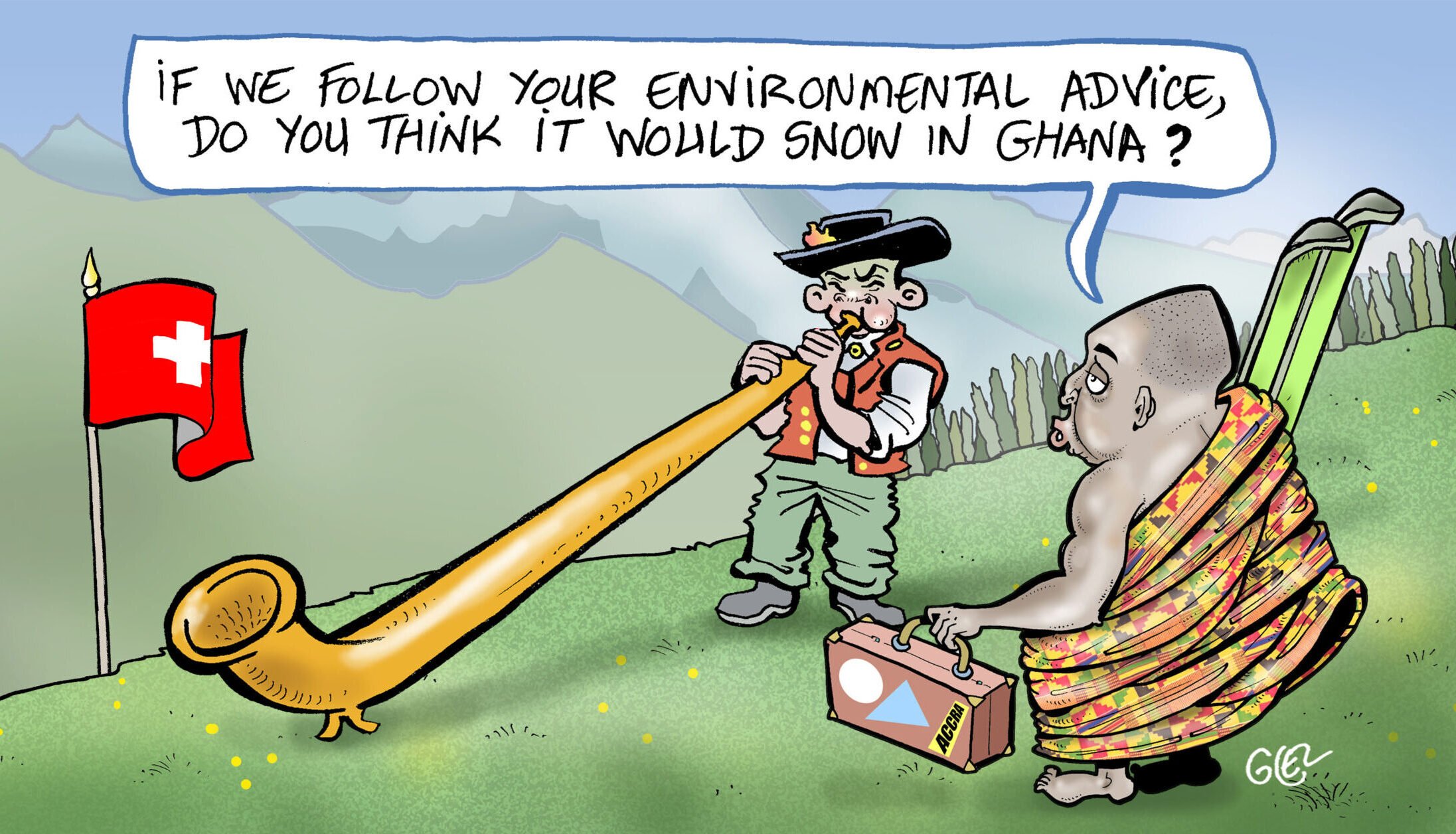By Damien Glez
Even though it is depicted as the land with its over-oxygenated mountains that supposedly provide clean air, Switzerland will find it difficult to meet its commitment to reduce its greenhouse gas emissions by 50% by 2030. It is thus using Ghana and Senegal to offset its carbon dioxide emissions, through environmental protection projects on their territories.
So here’s how the old deal worked: “My Southern brother, I’ll take some of your raw materials, I’ll test out polluting procedures in your country, I’ll produce and consume joules and watts in my country and eventually I’ll send you back some waste.” No, it wasn’t a very fair deal.
However, with the growing political awareness about climate change and people’s right to breathe clean air, the South is realising it can now help the North in an unprecedented way: help reduce the latter’s responsibilities for greenhouse-gas emissions that are difficult to significantly reduce.
The South made this promise under the Paris Climate Agreement and it’s under these circumstances that the less industrialised countries start to gain power.
Offset agreement
On 20 October 2020, Switzerland – a landlocked and industrialised country – signed an offset agreement with Peru which was presented as the ‘first agreement of its kind in the world’.
The inveterate Swiss polluters are asking that their carbon dioxide emissions be judged against the reduction in greenhouse-gas emissions that it will have by supporting other countries: a sort of licence to pollute obtained from the best pupils of energy virtue.
After this initiative worked in Latin America, Switzerland is now exporting its magic solution to Africa. In November, Berne signed an agreement with Accra that will allow it to offset part of its domestic pollution through climate projects in Ghana.
In exchange, they are offering several hundred thousand solar installations to reduce the amount of wood and charcoal used as fuel, the number of paraffin lamps, paraffin candles and diesel generators.
Cynical?
From 5 to 9 July, Swiss federal councillor Simonetta Sommaruga is visiting Ghana and Senegal with a bilateral climate protection agreement that has been signed and includes promotion of the use of methane gas on Senegalese farms.
The principle of ‘be virtuous so that we can be less virtuous’ might seem cynical and even unfair; but this time, the exchange of goodwill is cordial and civilised.
Of course, sub-Saharan Africa will continue to suffer from the global trend of climate change induced by the North’s behaviour.
But Switzerland is neither in the top 10 most polluting countries by volume, nor in the top 10 most polluting countries per capita. And local air, with less carbon dioxide in Ghana or Senegal, is still good while we wait for the world to do better.
Understand Africa’s tomorrow… today
We believe that Africa is poorly represented, and badly under-estimated. Beyond the vast opportunity manifest in African markets, we highlight people who make a difference; leaders turning the tide, youth driving change, and an indefatigable business community. That is what we believe will change the continent, and that is what we report on. With hard-hitting investigations, innovative analysis and deep dives into countries and sectors, The Africa Report delivers the insight you need.

